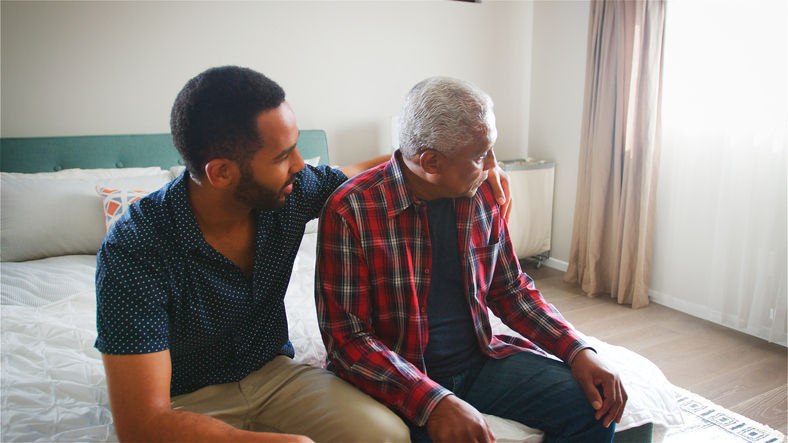Guns and Dementia
- Elder Care Law Blogger
- Nov 27, 2018
- 2 min read
Updated: Oct 6, 2022

Statistics indicate that about 43% of American households have at least one gun in their possession. In 2018, 5.7 million Americans have Alzheimer’s. That number will increase as the population continues to age. If you care for a loved one with dementia and have a gun in your home, you’ll want to pay attention to the risk of danger.
You may be concerned about your family member being able to drive. Maybe you’ve even tried to hide the car keys or sold the car. You may also wonder if they can still operate the stove safely without causing a household fire. But have you considered the risk of having a gun in your home? Have you thought about what could happen?
Quite often, a person will say, “My husband (or spouse) would never harm me or himself with his gun. He’s been operating a gun safely for 40 years.” Unfortunately, with dementia, it’s impossible to predict how the disease will affect each individual person. The condition can cause the brain to change in ways that may affect the person’s memory, personality, behavior, judgement, ability to use good logic, and to recognize and know their family members. It can cause confusion and some types of dementia can cause hallucinations. All of this can be a recipe for danger.
Consider the following scenario: Your husband wakes during the night. He doesn’t know who you are and thinks you’re a stranger or intruder in the house. He reaches for the handgun he keeps next to the bed. Sadly, this story has played out in real life and has resulted in tragic outcomes.
Many Americans are proud gun owners and firearms hold strong symbolic power. For some, taking away their gun would be equated to cutting off their right arm. What do you do if you are concerned about the guns in your home?
It can be a very difficult subject to approach. Here are some tips:
Take inventory. Is there a gun in the home? How many guns are there? Are they loaded?
Where are the guns stored? Is there a gun in the bedroom?
Do you know where the ammunition is?
Inform your doctor if there is a gun in the house and ask that he or she address the hazards.
Do your own online research for steps you can take on gun safety.
The National Rifle Association offers tips on safe firearm storage.
Some professionals will argue that it’s not enough to store guns safely. They recommend removing all firearms from the home.
The most important first step is to recognize that having a gun poses a safety risk to everyone and that people with dementia are at increased risk. Learn what you can do and take steps today to keep you, your loved ones, and caregivers safe. It may just save a life.







My husband was diagnosed with Parkinson’s Disease (PD) four years ago. For over two years, we relied on prescription medications and therapies, but unfortunately, his symptoms continued to worsen. His memory, coordination, and overall strength declined, and everyday life became increasingly difficult.Last year, out of desperation and hope, we decided to try an herbal treatment program from NaturePath Herbal Clinic. Honestly, we were skeptical at first, but within a few months of starting the treatment, we began to notice real changes. His alertness improved, his movements became steadier, and he regained a surprising amount of energy and clarity.Incredibly, he also regained much of his independence and confidence. It’s been a life-changing experience he feels more like himself again, better than…
While proper firearm training is essential for all gun owners, it becomes even more crucial when caring for someone with dementia. Understanding the risks and ensuring that firearms are securely stored can prevent tragic outcomes. Training should also include education on how to manage the safety of firearms in situations where cognitive decline may impair judgment.
Absolutely agree with you. That is why you should always keep your firearms locked up or in a safe that cannot be accessed without your knowledge. Also, if you are into guns, you know that they should be of proper quality. At https://gunsnation.com/, you can read more about this topic. I think it might be of interest to you.